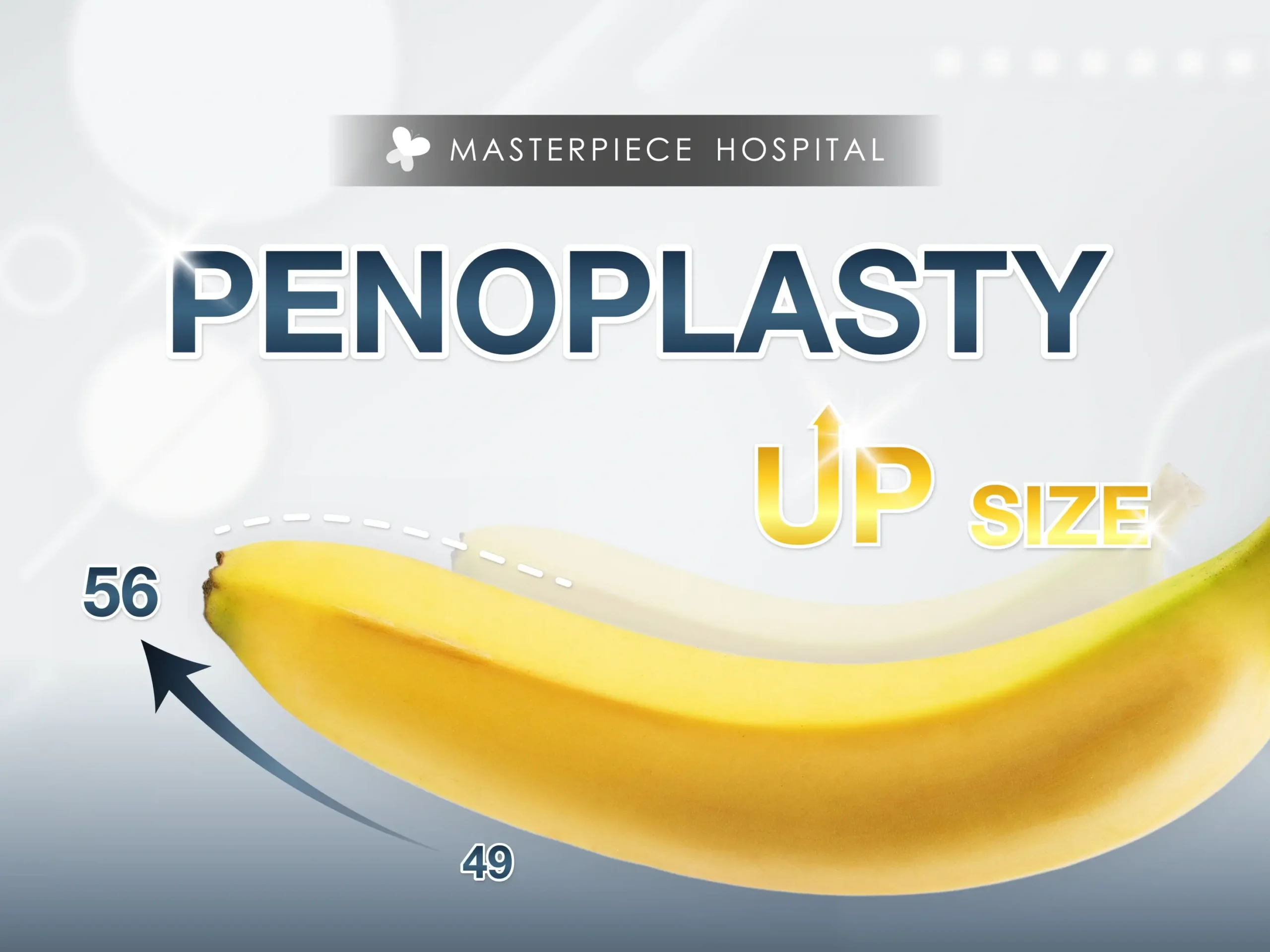Penoplasty
Penoplasty or penile enlargement refers to the process of increasing the size of the penis through various medical methods. This is something that many men are interested in, but not all methods are effective. For example, using non-standard injection treatments or visiting unreliable clinics may not provide good results. Therefore, if one wishes to undergo Penoplasty using different methods, it is important to choose a trusted hospital under the care of a specialist surgeon.
Penoplasty
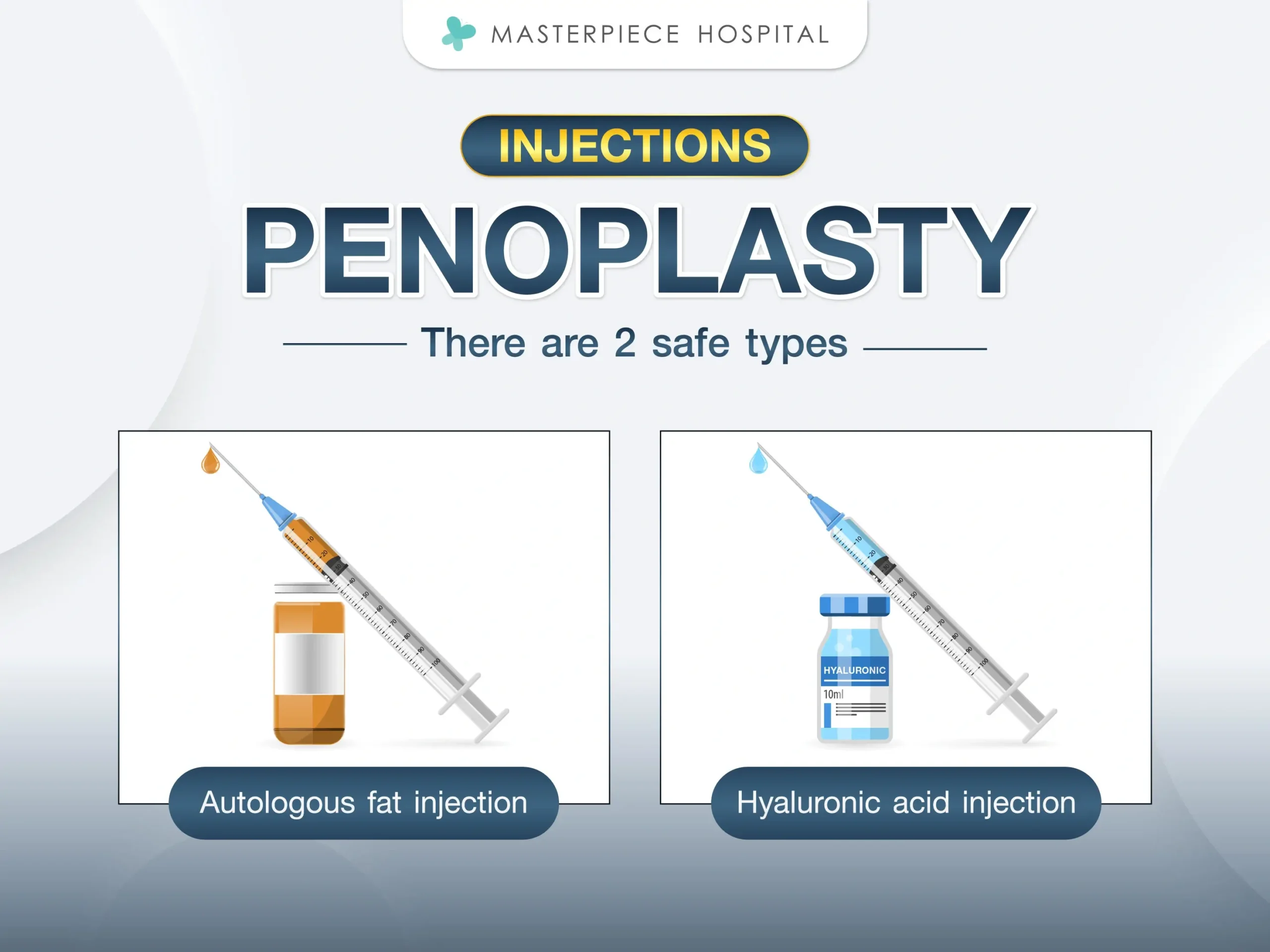
- Injection of enlargement substances
- Surgery using synthetic materials for size enhancement
There are two types of safe Penoplasty injections
- Autologous fat injection
This involves using fat from the patient’s own body, typically taken from the abdomen or thighs, and injecting it into the penis.
Advantages: It is safe since the fat used is from the patient’s own body, reducing the risk of allergic reactions or long-term complications.
- Hyaluronic acid injection
This substance is commonly used for facial aesthetic enhancements. It is safe and can also be injected to increase the size of the penis.
For surgery, silicone sheets or synthetic tissues are often used to wrap around the penis. The downside is that they can be felt or touched, and they may not provide a natural feeling compared to Derma Filler injections. Currently, Derma Filler injections are widely accepted in many countries around the world as a safe method that provides good aesthetic results.
Penis Lengthening
In cases where the penis is short, surgery can be performed to increase its length. The procedure involves making an incision at the base of the penis and releasing it from the pubic bone, resulting in an increase of about 1-2 centimeters in length. However, the tip of the penis may point downward more than before. This does not affect erectile function, and the penis will still be able to achieve an erection as usual.
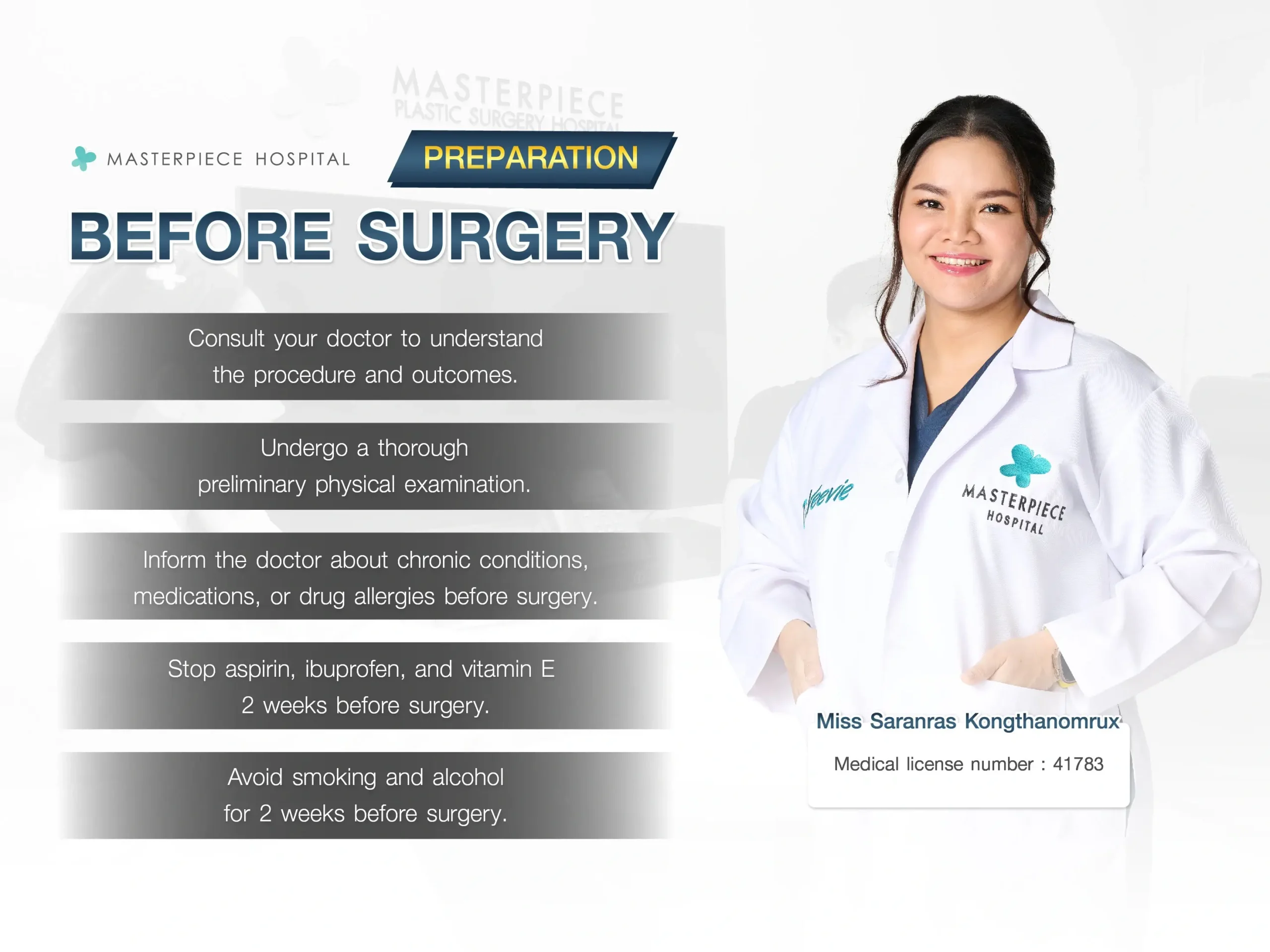
Preparation before surgery
- Consult with the doctor to fully understand the procedure and expected outcomes.
- Undergo a thorough preliminary physical examination.
- If you have any chronic conditions, are taking medications, or have a history of allergies to medications, inform the doctor before the surgery.
- Discontinue aspirin, ibuprofen, and vitamin E for 2 weeks before surgery.
- Avoid smoking or consuming alcoholic beverages for about 2 weeks before the surgery.
- Fast from food and drink for 6-8 hours before the surgery, as the procedure will be performed under general anesthesia.
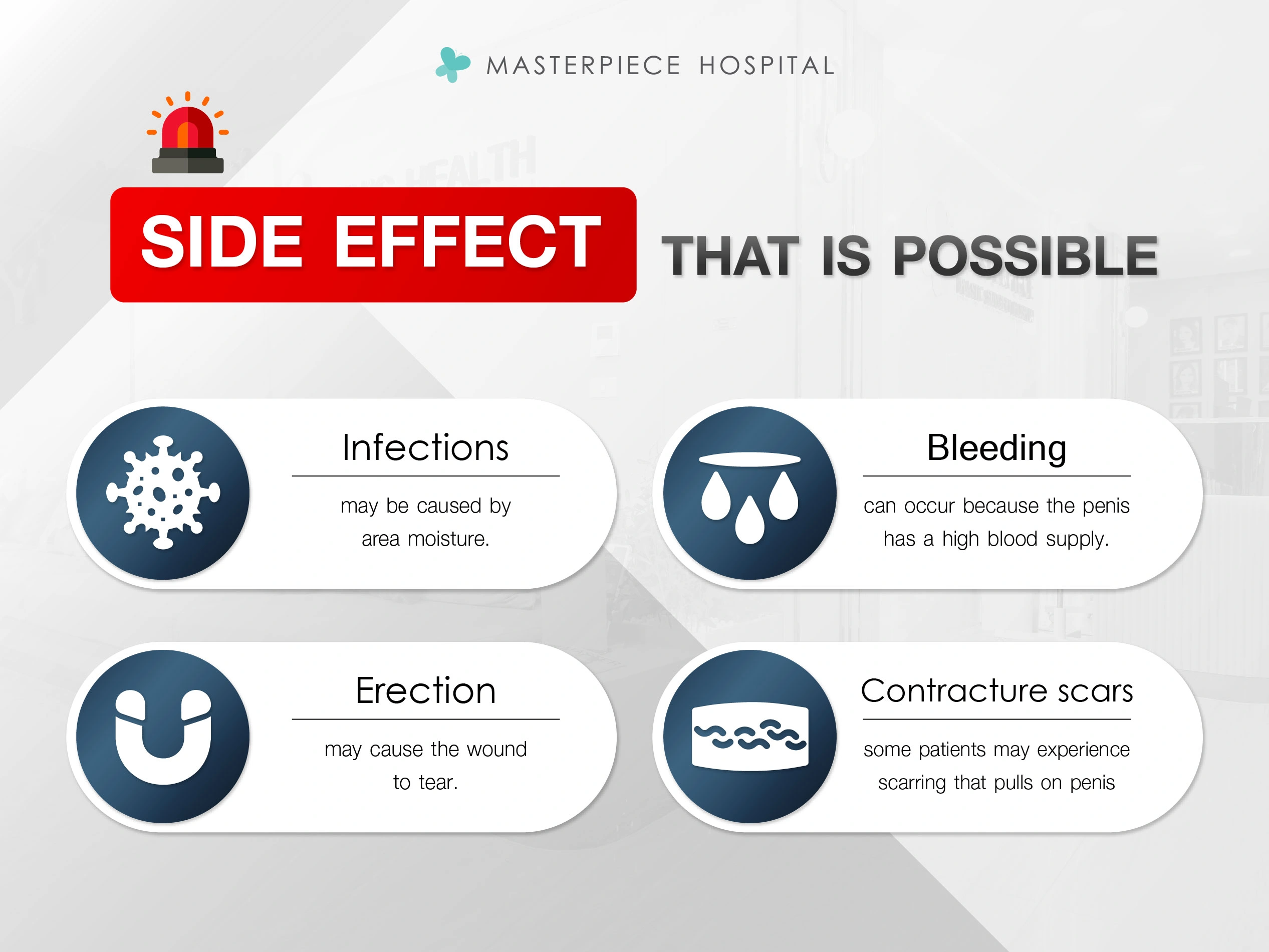
Possible Side-effect
- Infections and inflammation may occur due to the moist environment of the area.
- Bleeding can occur because the penis has a high blood supply.
- Erection of the penis may cause the wound to tear.
- Some patients may experience scarring that pulls on the scrotum or penis.
The doctor will provide aftercare instructions and post-surgery management. Patients should follow these guidelines strictly and attend follow-up appointments as scheduled.
FAQ about Derma Filler Penoplasty
Pros & Cons Derma Filler Penoplasty
- Natural, aesthetically pleasing shape without any illusion.
- Smooth texture without rippling.
- No risk of fibrosis in the future.
- Does not sag or form lumps; stays in place.
- Minimal pain with no need for recovery time.
- No risk of rejection by the body.
- Managed by urologists and male reproductive system specialists.
Incorrect Penoplasty involving foreign substances
Injecting foreign substances into the penis is often done out of ignorance or during intoxication. Common substances used in Thailand include olive oil, penicillin, or Unison, which aren’t properly sterilized before being injected directly into the penis. This can lead to serious issues such as inflammation and infections.
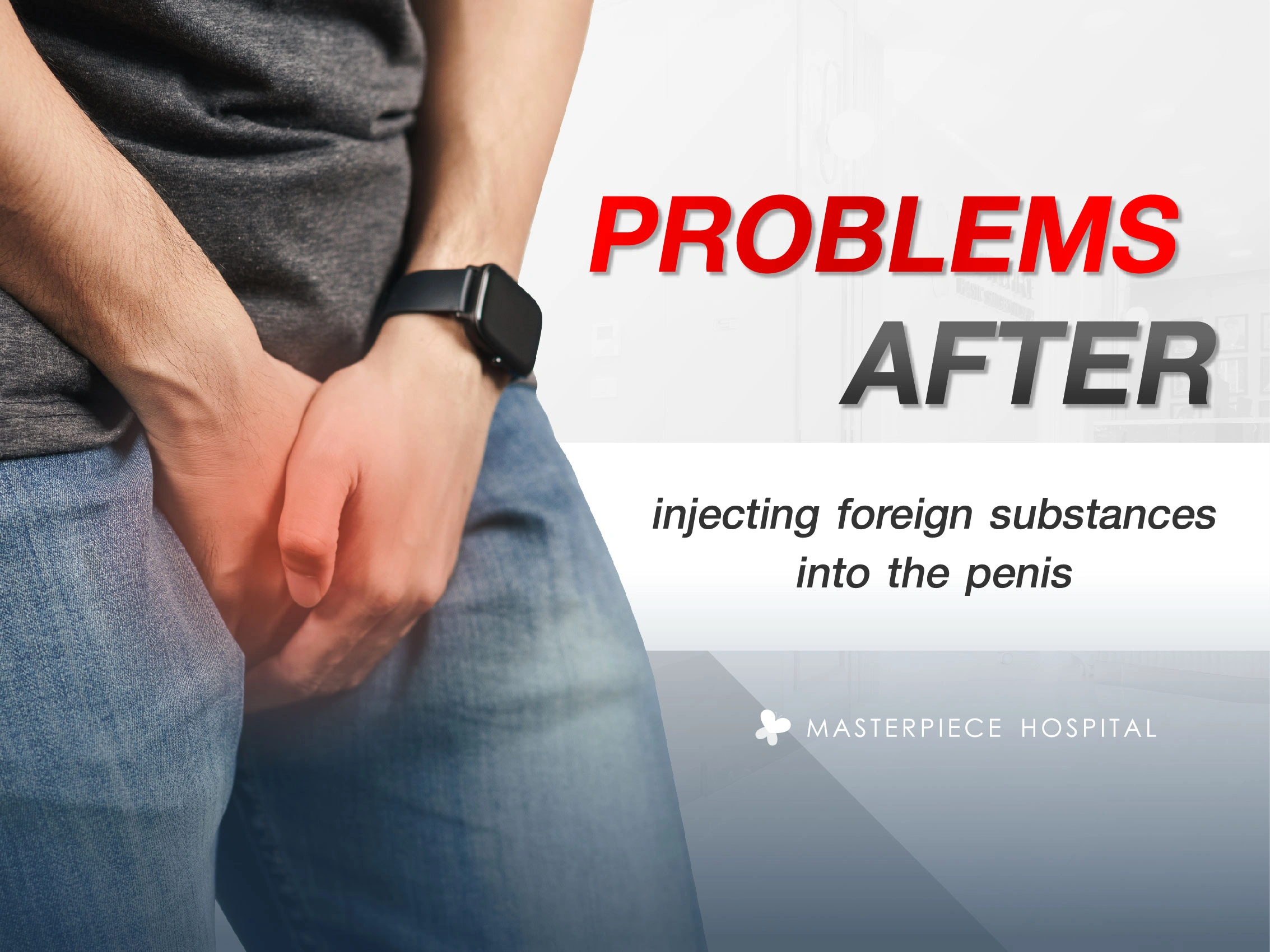
Problems after injecting foreign substances into the penis
- Causes inflammation or infection.
- Causes chronic wounds that could potentially lead to cancer in the future.
- Formation of hard scar tissue around the penis, causing difficulty in having normal sexual intercourse. In some cases, the injected substance may flow to the pubic area and scrotum, causing deformities.
Correcting these issues typically requires surgery, which usually involves cutting or removing hardened or fibrous tissue, and using skin from the scrotum to re-cover the penis for aesthetic purposes. In some cases, more than one surgery may be necessary.
Preparation before corrective surgery
- Fast from food and drink for 6-8 hours before the surgery.
- Discontinue anti-inflammatory medications (NSAIDs) such as aspirin and certain supplements that affect blood clotting.
- If you have any chronic conditions such as diabetes or high blood pressure, inform the doctor.
- Clean and shave the genital area before surgery.
- Prepare loose-fitting underwear to wear after surgery.
- It is recommended to choose dark-colored underwear such as black, navy, or brown, as lymph fluid from the wound may stain the underwear and be noticeable.
Surgical Procedure
The surgery, regardless of the technique used, is performed under general anesthesia, so fasting for at least 6 hours before the procedure is required.
- Remove the skin where the foreign substance was injected.
- If using Technique 1, the wound can be stitched closed immediately.
- If using Technique 2, the skin is cut down to the base of the penis.
- If using Technique 2, an incision is made in the scrotum, and the skin from the scrotum is lifted to cover the wound, then the skin is stitched closed using dissolvable sutures.
Post-Surgery Care
- Dress the wound twice a day, as there is often a significant amount of lymph fluid.
- Wound healing may be slow, and you may need to stay in the hospital for 2 days before going home. However, you will need to continue dressing the wound daily at home.
- Avoid heavy work for 10-20 days.
- Refrain from sexual activity for 4 weeks.
- Some bleeding from the wound is normal, but if there is excessive bleeding, contact the doctor immediately.
- Necrosis may occur in certain areas of the wound edges, which may need to be removed and restitched (under local anesthesia).
If the surgery is performed in two stages, you will need to schedule another surgery after the wound has healed, typically 2-3 months later.
The doctor will schedule weekly follow-ups to monitor the wound until it fully heals.
Common issues people often consult or inquire about
- Have lumps, abnormal shape, or disproportionate size.
- The shaft of the penis is too large, making it difficult to use.
- Inflammation and infection, with symptoms such as pain, swelling, redness, and warmth.
- Recurring inflammation and infection that comes and goes.
- Chronic wounds that persist for months.
- Substances leaking to the tip of the penis, causing difficulty in retracting the foreskin.
- Difficulty in cleaning the area.
- Concerns about potential future complications.
Currently, the safest recommended injection substance is filler, which is biocompatible and doesn’t cause a reaction with the body. However, it isn’t permanent, typically lasting around 1-2 years, after which re-injection may be necessary. Another option is using autologous fat, where fat is taken from the abdomen and injected into the penis to enhance its size. This method carries no risk of rejection and is less likely to cause inflammation, making it a better option than injecting foreign substances, which can lead to severe complications. However, the best course of action is to avoid injecting foreign substances on your own. If complications arise from previous injections, don’t worry, as they can be corrected. It’s recommended to consult a doctor and address the issue as quickly as possible.
The medical team at Masterpiece Hospital
We are proud to provide consultations on male health before making a decision.
